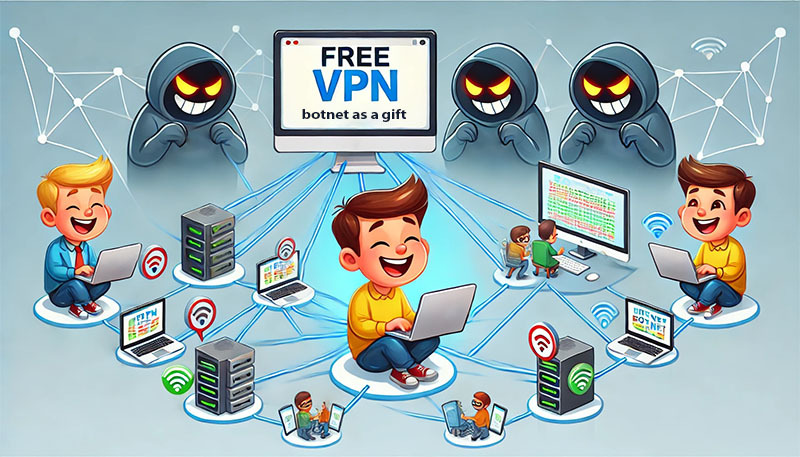The Illusion of Protection: Free VPNs and Their Devastating Consequences
Many users wonder, “Why pay for a VPN when there are free options?” But are free VPNs truly free? According to a recent report by Kaspersky Lab, the reality is that free services often come with hidden traps, as demonstrated by several major incidents.
The 911 S5 Botnet: A Case Study
In May 2024, the FBI, together with law enforcement agencies, uncovered the 911 S5 botnet, which spanned 19 million unique IP addresses across more than 190 countries. The creators of this botnet used several free VPN services, including MaskVPN, DewVPN, PaladinVPN, ProxyGate, ShieldVPN, and ShineVPN. Users who installed these apps unknowingly turned their devices into proxy servers for relaying third-party traffic.
Cybercriminals used these proxy servers for various illegal activities, such as cyberattacks, money laundering, and large-scale fraud. As a result, users of free VPNs became unwitting accomplices to digital crimes, as their devices were used without their knowledge.
The 911 S5 botnet began operating in May 2014, and the free VPN apps it relied on had been circulating online since 2011. In 2022, authorities temporarily shut down the botnet, but it quickly resurfaced under a new name—CloudRouter. Finally, in May 2024, the FBI managed not only to expose the botnet’s infrastructure but also to arrest its organizers. Over its lifetime, the botnet generated nearly $100 million for its creators, while the total damage to victims reached several billion dollars.
Other Incidents Involving Free VPNs
The 911 S5 case is not unique. In March 2024, a similar scheme was uncovered involving dozens of apps published on Google Play, many of which were free VPNs. These included Lite VPN, Byte Blade VPN, BlazeStride, FastFly VPN, and others. These apps also turned users’ devices into proxy servers for relaying third-party traffic.
While these VPN apps are no longer available on Google Play, they continue to spread through other sources, such as the alternative app store APKPure. These apps may appear under different names and developers, making them difficult to detect and remove.

Cases of infected VPN apps show that free services can carry hidden risks. If you need a VPN for secure connections but don’t want to pay, consider using reputable free versions from major, trusted companies. These offer security, though they may have limitations on traffic volume or other features.
Why Paid VPNs Are the Safer Choice
Still, the best option is always to purchase a paid subscription to a high-quality VPN. Paid VPN services often provide higher speeds, reliable protection, and additional security features. Subscribing to a paid VPN helps you avoid many of the risks associated with free services and ensures a better level of protection and privacy.



